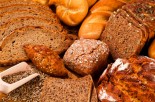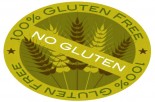Search Podcasts
Wednesday, 05 February 2014 12:22
Celiac Disease & Children: Hope on the Horizon
Celiac Disease is on the rise, even in kids. How can you best protect your little one from the effects of the condition?
Published in
Healthy Children
Thursday, 07 November 2013 13:45
Are You a Virgin to Dieting?
Published in
HER
Monday, 04 November 2013 21:42
Frustrations of a Celiac
Why is it that more places are offering gluten-free foods, but are recommending that people with Celiac Disease shouldn't eat there?
Doesn't that defeat the purpose?
It's been two years since my diagnoses of Celiac Disease. At first, I would overdramatize how much my life was ruined and that food would no longer mean the same. I recently became excited to hear of all the great options that were open to me. Little did I know, what restaurants really meant was their gluten free option is only for those who are going through yet another diet fad, not those who truly need it.
I've always had digestive problems, but thought it was just stress, or IBS. It seemed normal to me (and I as I type this I realize how this sounds) to throw up, have diarrhea, and get horrible abdominal pains, and constantly feel bloated immediately after eating.
I had just transferred to DePaul University in the fall of 2011, and was just getting used to living back on a college campus again. This was when I began noticing more and more issues with my gut. However, I ignored these symptoms and just thought I was stressed from school, as I tend to be during the quick ten-week quarter system DePaul has.
A few nights a week I would be up all night, death gripping the sides of my toilet while everything poured out of my mouth. My roommates would joke with me and say, "You're sick all the time. Maybe you have the gluten thing." Laughing, thinking that was not even possible, I ignored them and continued doing absolutely nothing about addressing the problem.
As time progressed, it started to become a hassle to eat. After every meal I would feel exhausted from throwing up, from the horrible pains I felt and all I wanted to do was lay down. Date nights I had with my boyfriend turned embarrassing, for I would need to quickly excuse myself to spend what seemed an eternity in the ladies room.
Published in
RadioMD Blog
Wednesday, 18 September 2013 14:00
Is Your Food Really Gluten Free?
If you're someone who suffers from Celiac disease, gluten sensitivity or are simply interested in a gluten-free diet, new standards of food labeling can affect you.
Published in
Mindful Medicine
Saturday, 17 August 2013 13:56
Read The Label: The Gluten-Free Reality
Seeing the words "gluten-free" stamped onto a box of cookies, crackers, or Twinkies is not a green light that sends you on the road to healthier living. Now that the availability of gluten-free junk foods is legitimized by appearance in "common" large grocery chains, and product offerings expanded faster than waistlines, misinformation about these allergy-friendly foods is increasing.
Oh yes, large packaged food companies are listening to the siren scream of customers for more gluten-free foods choices. But like much in the past history of food companies' service of public wants, it's demand begetting inferior (from a healthful perspective) supply. As more shoppers load their grocery carts with gluten-free pretzels and pasta, grocery suppliers and stores expand their gluten-free aisles. According to a survey conducted by the NPD group in January 2013, approximately 30% of adults in the United States reported trying to reduce or exclude gluten from their food intake.
Despite the fact that a gluten-free diet is beneficial only to folks allergic or intolerant to gluten, many perceive gluten-free foods to be healthier and associated with weight loss. The real truth: gluten-free does not equal sugar free, healthful, skinny, or low fat. In fact, gluten-free foods often are less healthy and more expensive than their healthier, less sugared, whole wheat counterparts. You need to do what is best for your health and your budget—so here's the gluten-free 411.
Published in
RadioMD Blog
Wednesday, 14 August 2013 11:33
Healthy Bread & Rice Substitutes
While bread and rice were previously thought to be quite healthy, the opposite is actually true. Fortunately, there are healthy substitutes.
Published in
Naturally Savvy
Wednesday, 14 August 2013 11:11
Gluten-Free on a Budget
Published in
Naturally Savvy
Monday, 08 July 2013 12:33
Are Grains Slowly Killing You?
Grains are supposed to be good for you. But with new research and the "gluten-free" craze, might that be a myth?
Published in
Staying Well
Monday, 01 April 2013 01:28
Are you Gluten Intolerant? Find Out Now!
Gluten, a protein found in some grains, can cause serious problems for many people.
But the issues can go from a genetic intolerance called Celiac’s disease, to a non-specific type of “sensitivity." This “sensitivity” can cause a variety of symptoms from thyroid disorders to gas and bloating.
But why is it that the average medical doctor knows about Celiac’s disease, but knows nothing or denies the existence of gluten sensitivity?
It has to do with a weakness in conventional medical training called “hypofunction”. The great Naturopathic Doctor. Konrad Kail, discussed “hypofunction” in terms of an organ or a system, which is symptomatic to the patient, but not detectable by most or any available testing methods.
For years as gluten content was rising in grains such as wheat and corn, people started to have a variety of symptoms which where “unexplainable”.
But when these patients where tested, nothing showed up.
Published in
RadioMD Blog








